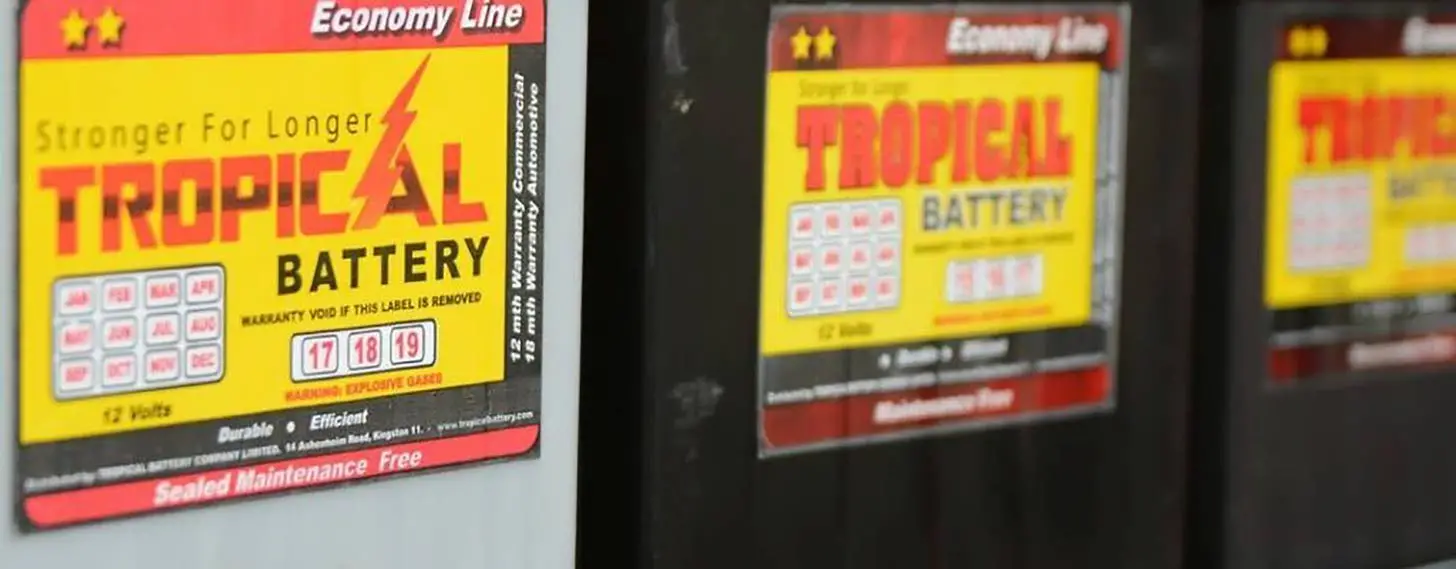
TROPICAL BATTERY EYEING US LISTING
Company making plans to trade on the Nasdaq in 3 to 5 year
TROPICAL Battery Company Limited has set its sights on listing shares on the New York-based National Association of Securities Dealers Automated Quotations (Nasdaq) stock market before the end of this decade and has indicated that its planned graduation to the main market of the Jamaica Stock Exchange (JSE) later this year is a first step to achieving that goal.
The company hinted at a Nasdaq listing just six months after acquiring the San Jose, California-based Rose Electronics Distributing Company (Rose Batteries), a producer of batteries and chargers.
“We have a team and a strategy, and coaches hired in California, with whom we convene quarterly to discuss our three-to-five-year plans and Nasdaq listing aspirations,” CEO of Tropical Battery Alexander Melville said in an earnings call on Thursday. “We have a structured three-year plan in place to achieve this listing, which will subsequently create even greater liquidity,” he added.
Tropical Battery is the latest Jamaican company to express a desire to list on the Nasdaq. Companies such as GraceKennedy and NCB Financial Group have in the past outlined plans to list on the Nasdaq, but those have failed to materialise for various reasons, though GraceKennedy still hopes to list on international stock exchanges by 2030.
But ahead of Tropical Battery’s planned listing is the graduation of its shares to the main market of the JSE.
Tropical Battery indicated in a press release late last month that it plans on transitioning to the Main Market before year end and has now clarified that the move should take place by “end of September or early October” in the same earnings call in which Melville announced the intention to list on the Nasdaq.
“We are very excited about moving to the main market. Only, I think, about six or seven companies have gone from Junior Market to Main Market, and we’re actually doing it early, four-five years after listing,” stated Meville in the earnings call.
The push to take its shares off the Junior Market and have them traded on the main market instead is being driven by the company’s need to raise capital to drive its expansion plans as well as to pay down debt it took on to purchase the aforementioned Rose Batteries.
It said in a March filing that it paid US$19 million ($2.9 billion) for the acquisition, but that figure was revised to US$22.8 million ($3.5 billion) in its financials released on Wednesday. The funds to purchase the battery producer came through loans from Sygnus Credit Investments. Part of that initial loan from Sygnus Credit Investments was refinanced with a loan from CIBC, a bank.
Tropical Battery sought to secure low-interest funding from US banks, but Melville explained that US lenders were cautious due to the company’s foreign ownership. Given the time-sensitive nature of the Rose Batteries acquisition, with multiple bidders vying for the 62-year-old business, the company opted for financing in Jamaica to meet the deadline.
The company, however, now wants to raise funds to repay at least part of what it owes Sygnus Credit Investments, to allow more of its earnings to flow to its bottom line to pay dividends, and is eyeing an additional public offering (APO) of its shares as one possible method to get the funding.
“It’s either going to be a long-term financing facility or an equity injection, and whether that’s through an APO, a third-party investment, or a rights issue, we’re figuring out the best way to proceed,” explained Melville.
Still, he said the intention is to cut the company’s debt by half or roughly US$10 million ($1.5 billion) and raising that amount through an APO will see it breaching the JSE rules of Junior Market companies not having share capital in excess of $500 million, hence its push to list on the main market. Tropical Battery currently has share capital valued at $164.3 million.
However, concerns were raised that an APO could lead to a decline in the stock price. Melville addressed this, explaining that unlike other companies, Tropical Battery’s approach to the APO will be distinct, focusing on facilitating its transition to the Main Market rather than solely raising capital.
“That move to the main market makes us more attractive to larger investors, pension funds, and individuals who value transparency. We’re adding a new independent board member, demonstrating our commitment to transparency, growth, and dividends. This commitment will undoubtedly drive our stock price higher,” he assured.
The company also plans to issue shares to the principals of Rose Batteries. That resolution was approved by shareholders at its annual general meeting in April this year to issue 65,627,273 new ordinary shares. At Thursday’s closing price of $2.20, that’s $144.38 million in new shares to be issued.
Melville also assured that a US financial institution has committed to supporting Tropical Battery by providing low-interest funding for future US acquisitions. He hinted that additional acquisitions are likely to occur in 2025 or 2026, with the company well-positioned for strategic growth. Apart from its Jamaica and US business, Tropical Battery also operates in the Dominican Republic.
For its third quarter from April 1 to June 30, 2024, Tropical Battery has achieved significant sales diversification across its three key regions: Jamaica, the Dominican Republic, and the United States. Notably, the company has shifted from relying heavily on Jamaican sales to a more balanced distribution. According to its third-quarter report, the United States now accounts for 55 per cent of sales, marking a substantial change in the business and its cash flow. Furthermore, the US market contributed 65 per cent of the company’s operating profit last quarter. This development positions Tropical Battery for further growth opportunities within the US market.
The company’s revenues overall soared by 143.6 per cent to $1.9 billion. Notably, this quarterly revenue surpasses the $1.4 billion the company earned in revenue for all of its 2019/20 financial year, just before it listed on the JSE.

























